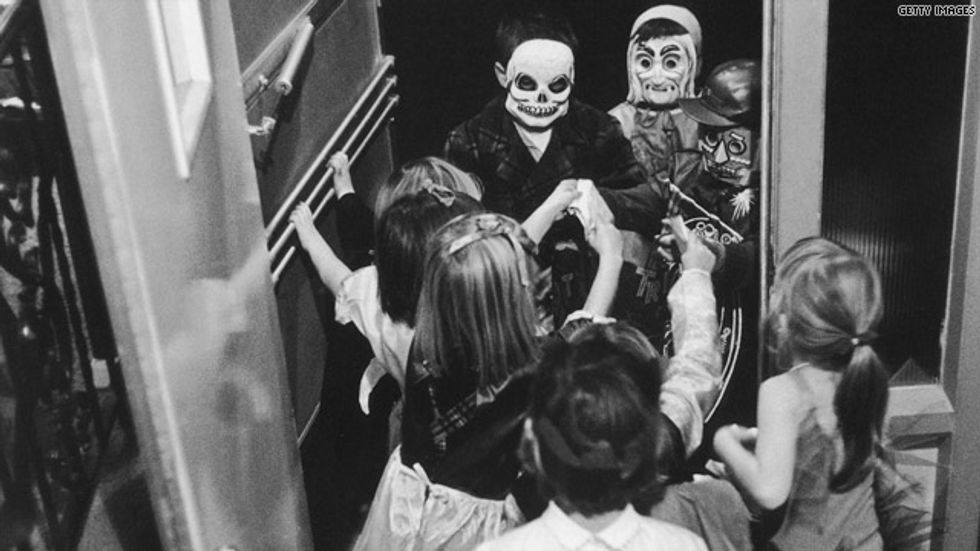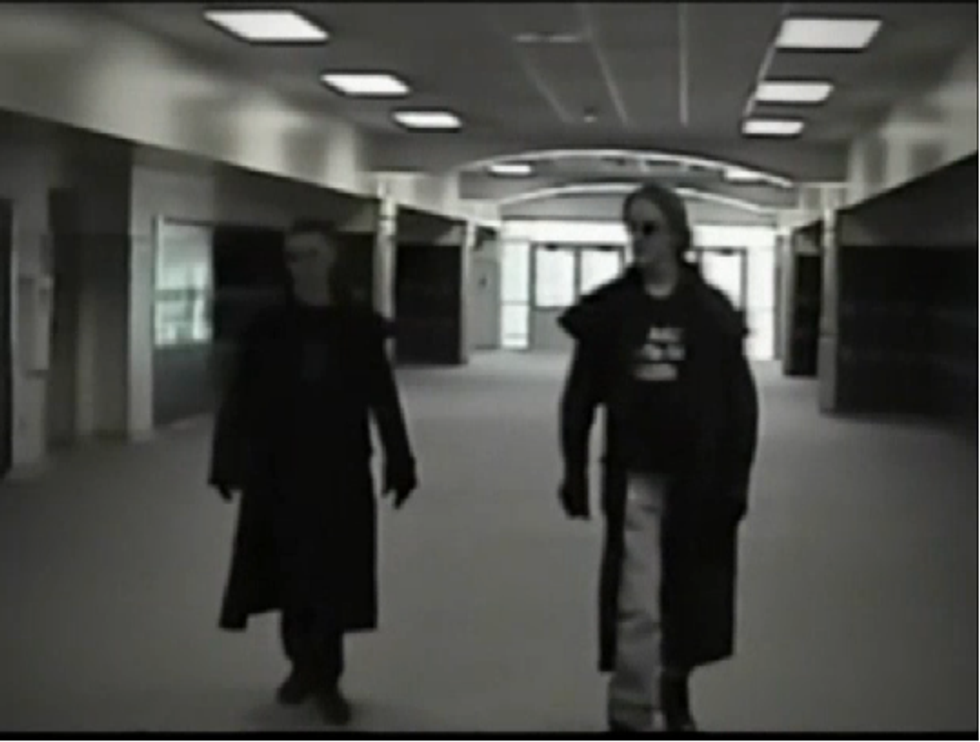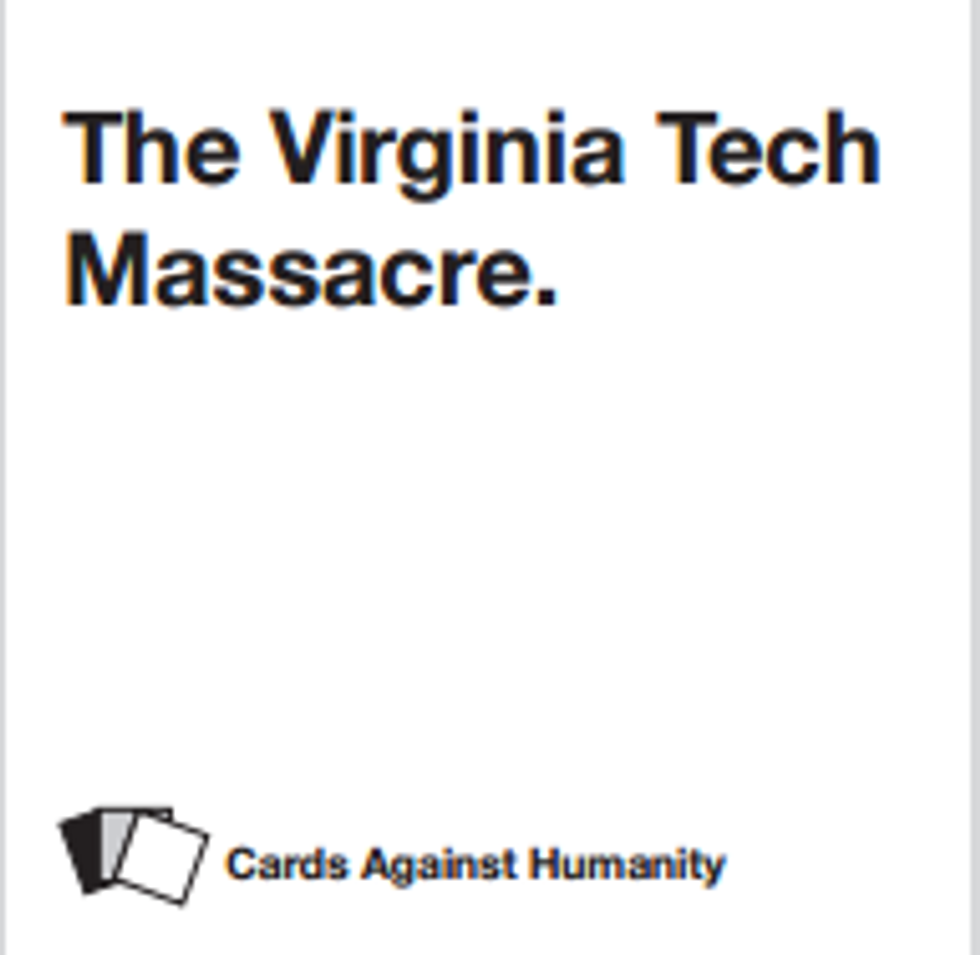Over Halloween weekend, two sophomore boys attending Litchfield High School in western Connecticut dressed up in questionable matching costumes that caught the attention of a group of people in a public area of the town. The costumes mirrored the outfits worn by the Columbine shooters of 1999, and when people pointed that out to the young men saying, "I bet you're going to shoot up the school," they responded sarcastically, and though what was exchanged is unclear, it did prompt one girl to tell her parents, who then called the police.
So on Sunday Nov. 1, state troopers responded to a potential threat to Litchfield High School for that Monday.
The teens, who were eventually arrested, had been dressed, according to Litchfield Superintendent Lynn K. McMullin, in black trench coats, baseball caps, and sunglasses. The costume bore a striking resemblance to what the shooters had been wearing, and additionally the students were allegedly making threats towards other students, alluding to possible bodily harm.
While there was never any official threat made, and nothing occurred at the high school, the matter is being taken very seriously. The boys were brought into custody, reprimanded to a juvenile detention, and were charged with inciting injury to persons or or property and breach of peace.
Those are the facts: it's what happened, it's a simple case of cause and effect. Dress up in insensitive, offensive, threatening costumes like these and make a couple of ill remarks, and there will be consequences. But is that what these boys expected? Did they plan to make a serious statement that day, or was this an extremely poor joke?
Society wants to be able to say that those kids knew what they were doing, and so we can punish and blame them. But pop culture complicates what should be an obvious instance of right or wrong.
A Google image search for "Columbine Shooters Outfit" yields some results that will put a sour taste in your mouth. The website Polyvore, which allows users to create aesthetics for characters, outfits that speak to different cultural icons, and costumes, hosts three of the top results.
The above images are from Polyvore users ghostlygabs (for the female rendition) and z00eydeschanel (for the two male outfits). These pictures are just the tip of the iceberg, in some ways: the rest of the Google image results page is full of photos of weapons, drawings, photos of the massacre and people dressed up as either the shooters or the victims.
It begs the question: what made people believe it was okay to turn a real, terrible event into a subculture?
Comedy is always pushing boundaries and allowing us to approach difficult topics from a different perspective. Sometimes comedy about hard issues is necessary to facilitate dialogue, to get people talking and thinking about pressing social matters. It makes us wonder why certain topics make us uncomfortable while others are just funny.
Others, though, are just not.
This card belongs to the original and downloadable Cards Against Humanity game, implying that this is a subject matter which we can now laugh about because, after all, enough time has passed. Some people, according to this Reddit thread, have opted to remove the above card from their deck, along with others that are particularly offensive, and deal with homophobia, transphobia and racism.
Maybe those Litchfield High students thought their costume would be received with the same allowances we permit Cards Against Humanity.
We pick and choose when the right time to be serious about topics like school shootings is. Kids might snicker during a lock-down drill, in part because they are uncomfortable with the possible reality of the situation, but a satirical deck of playing cards is far from everyone's minds when we are confronted with an actual incident.
Were those two young students (sophomores, probably fifteen or sixteen years old) seeking to be labeled as an actual threat, or a joke? And can we push all the blame on their developing, immature, and insensitive minds if it's the latter? It's possible that these boys were confused about when a joke can be taken too far, and they chose to take a piece of very dark comedy out of the board game closet, off the pages of the Internet, and wear it on their bodies for everyone to see.
That was too close to reality. And so, as they have since learned, it came with real consequences that they now have to deal with for the rest of their lives. The truth is that a problem built up through years of a culture desensitizing itself to triggering memories in select contexts won't be solved with one arrest. Maybe one person's perception of what is comedic has changed... Has yours?


























